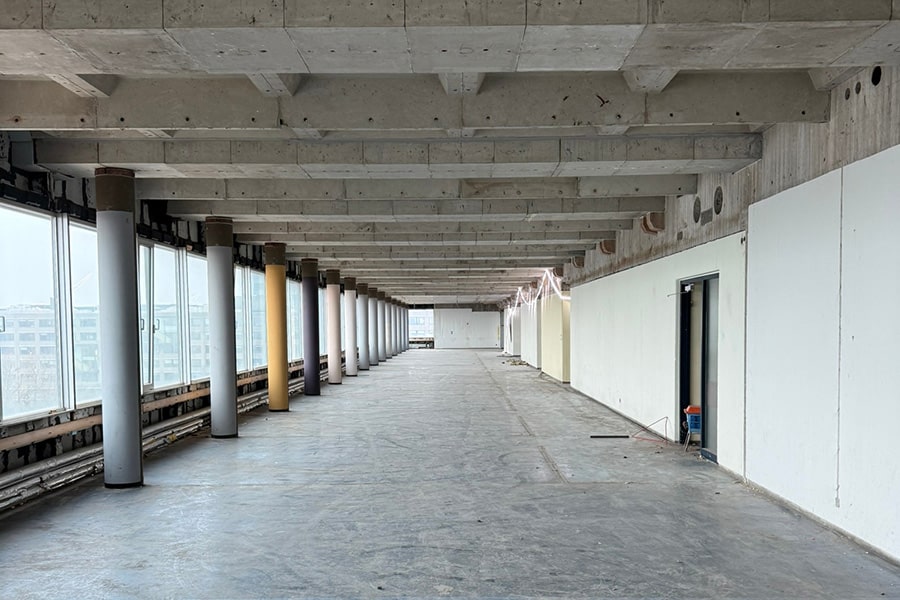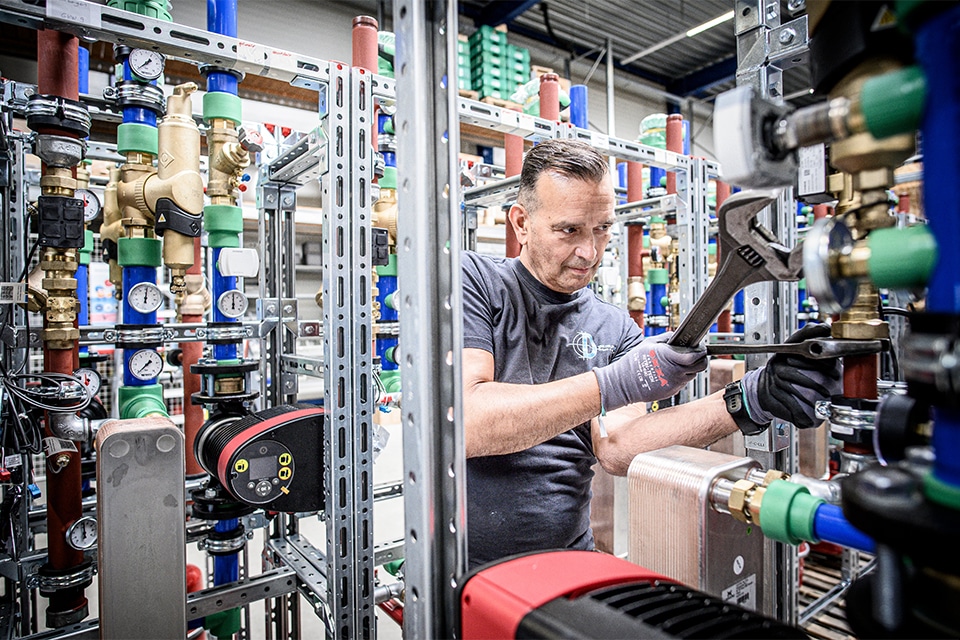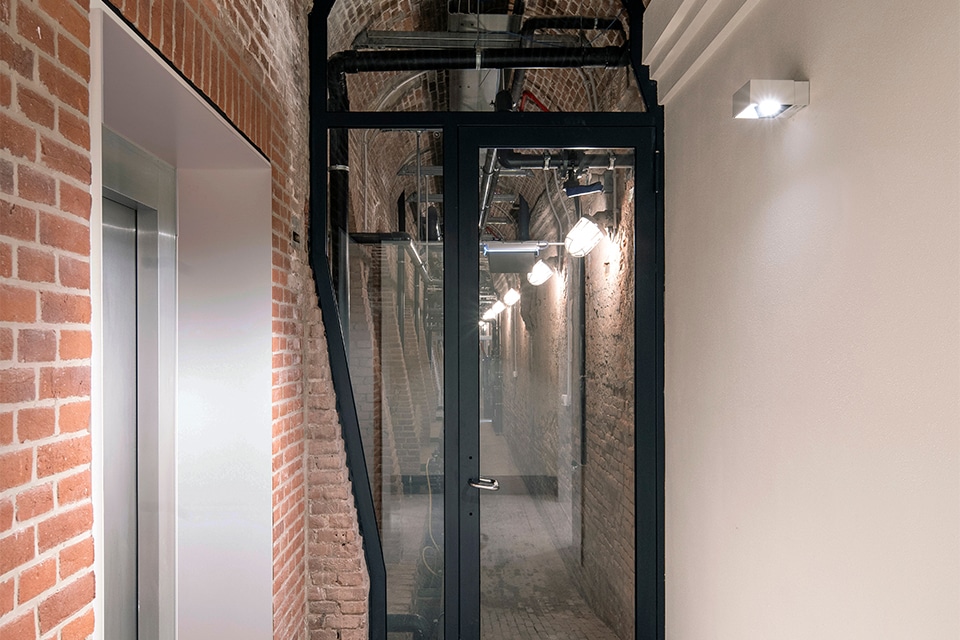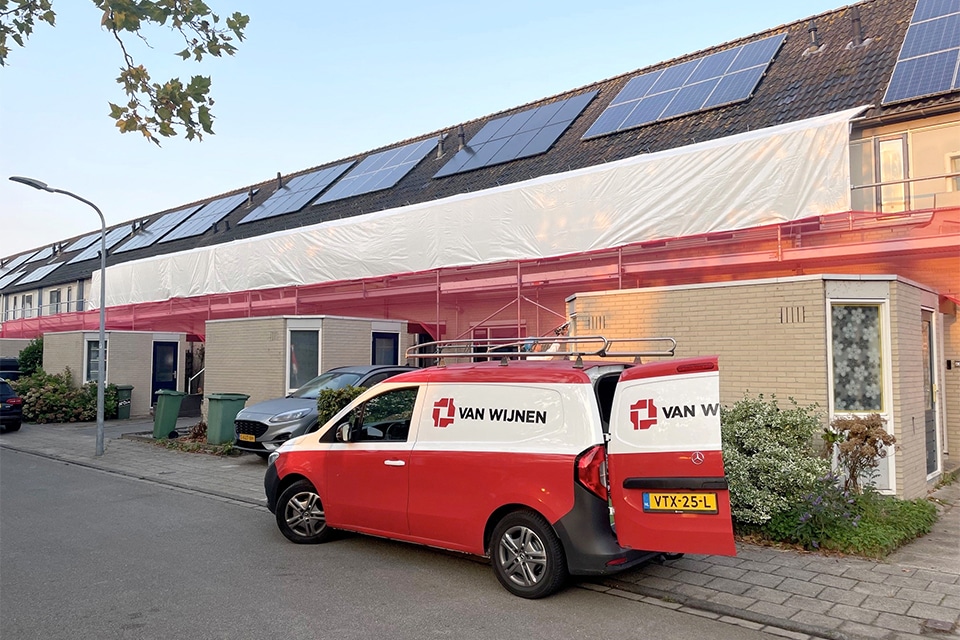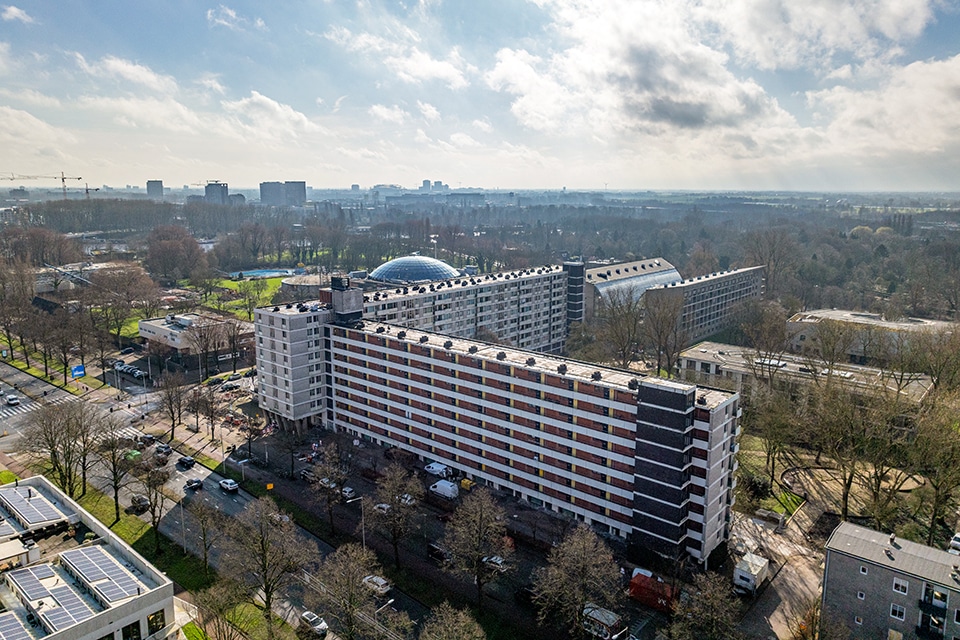
Sustainable construction, fast assembly, less labor and waste
Flax walls in River House provide 121,591 KG of CO2 storage
Faay produces bio-based partition walls for renovation, transformation and new construction projects. For the renovation of the Rivierenhuis in Amsterdam, the company is supplying approximately 17,000 m2 of flax walls. A special project, with ambitions focused on circularity, energy transition, utilizing expertise from the market and stimulating cooperation.
Mirjam Heidekamp, project consultant at Faay: "It was the wish of housing corporation Eigen Haard and main contractor Hemubo to renovate the Rivierenhuis as sustainably as possible. DOOR architects therefore started drawing with our walls from the design phase."
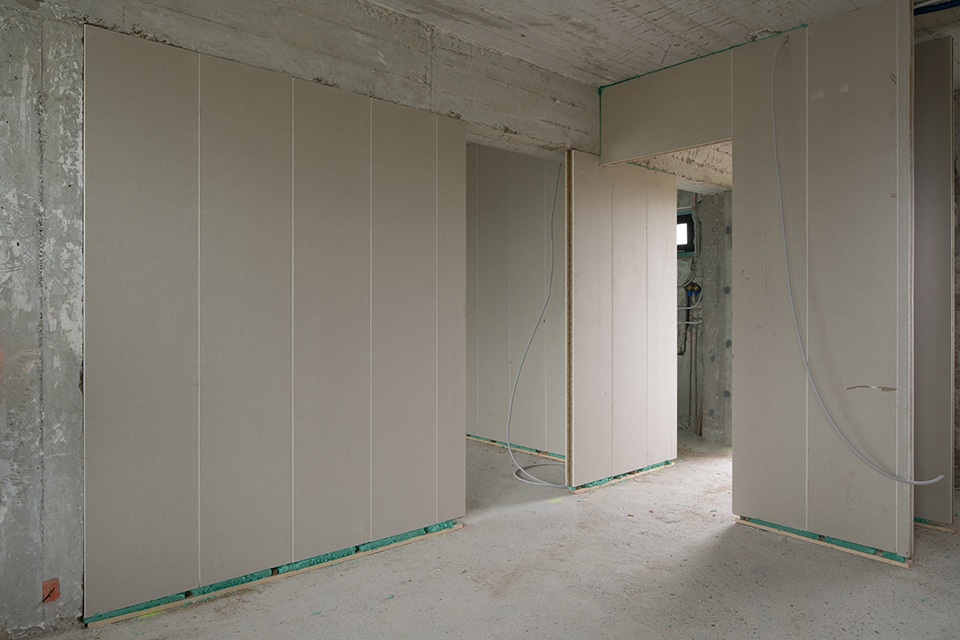
Faay room and living partition walls were chosen for the Rivierenhuis. These environmentally friendly prefab elements have a solid core of flax and a top layer of plasterboard. Flax absorbs CO2 and also ensures a healthy and pleasant indoor climate. Faay has been producing these walls for more than fifty years and therefore has a lot of knowledge and experience. The walls are robust, screw-tight, sound-insulating and fire-resistant, and all systems comply with the Buildings Decree. The assembly of the walls in the Rivierenhuis is provided by finishing partner Vellinga Project Realisatie. "We have been working together for years," Heidekamp says. "Vellinga has built up a lot of expertise in the processing of our systems and thus, among other things, makes an important contribution in speeding up the construction time."
Quick installation
In the Rivierenhuis, all apartments are made almost completely new. All non-load-bearing walls are removed and replaced by Faay walls. One of the big advantages is that they are quick to assemble. Frame and battening, insulation and end cladding are combined in one prefabricated panel and because of the solid core of flax hulls, back timber is not needed.
In addition to the standard assortment, Faay's delivery of custom work is also an option. "At the Rivierenhuis, we deliver the walls tailored and packaged per floor. This increases construction speed, avoids waste of raw materials and prevents waste on the construction site."
Low environmental cost indication
With a solid core of flax (absorption of about 580 kg CO2/m3 wall), an ecologically responsible production process and a very low MPG score, Faay is the right solution for comfortable living, flexible transformation and circular building.
Flax is a wonderful material to build ecologically with, Heidekamp says. "There is little environmental impact in the production of flax and the material has an extremely low energy content. By using flax as a raw material for building materials, CO2 can be sequestered in a building, creating a positive effect on the greenhouse gas balance. When the building incorporating biobased materials is demolished, the materials can be reused and the CO2 remains stored. In short, with Faay flax walls you not only build efficiently and cost-effectively, but also circularly. Faay flax walls thus offer a future-proof and environmentally friendly solution for the construction sector."
Heeft u vragen over dit artikel, project of product?
Neem dan rechtstreeks contact op met Faay Vianen B.V..
 Contact opnemen
Contact opnemen
